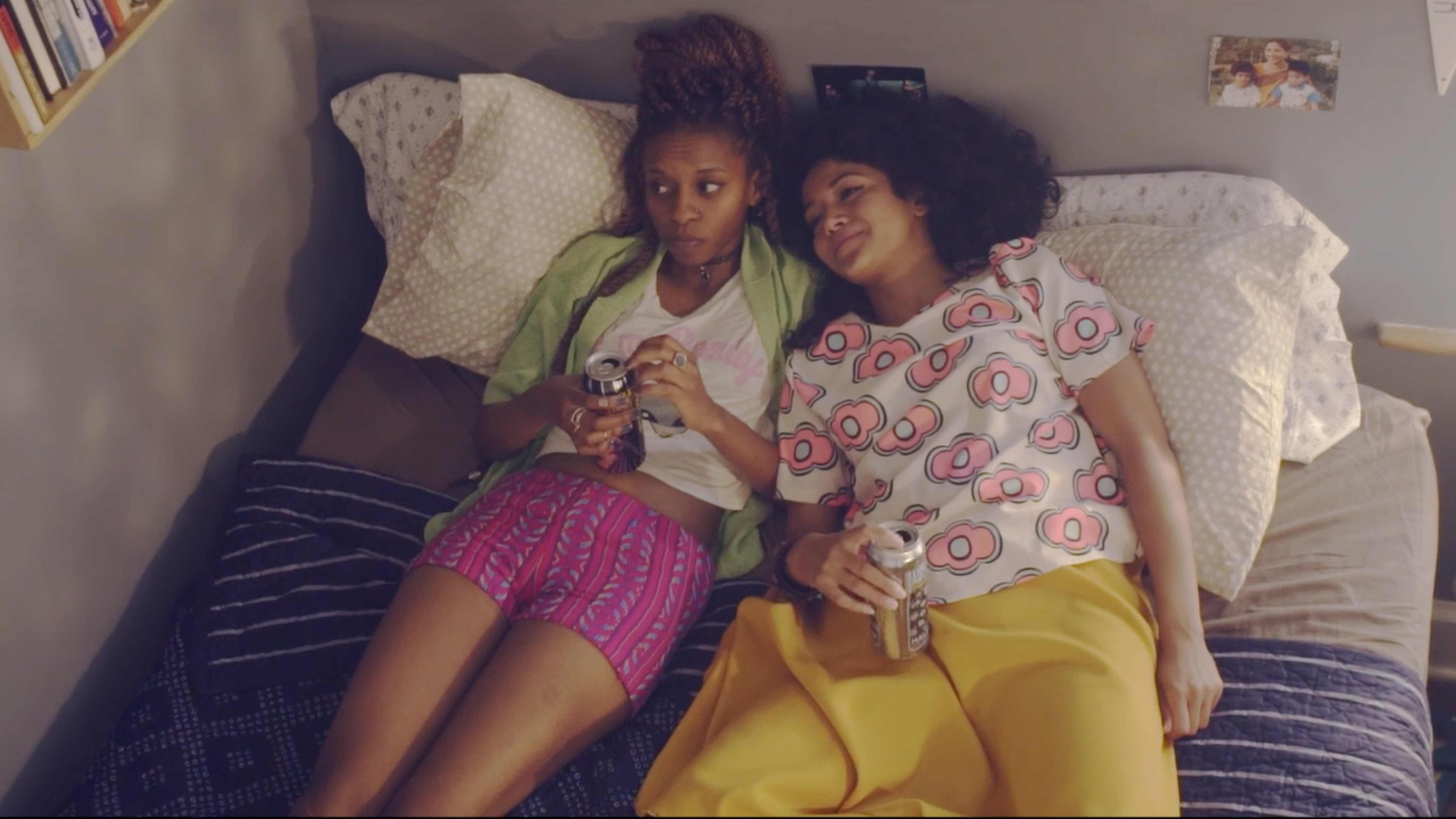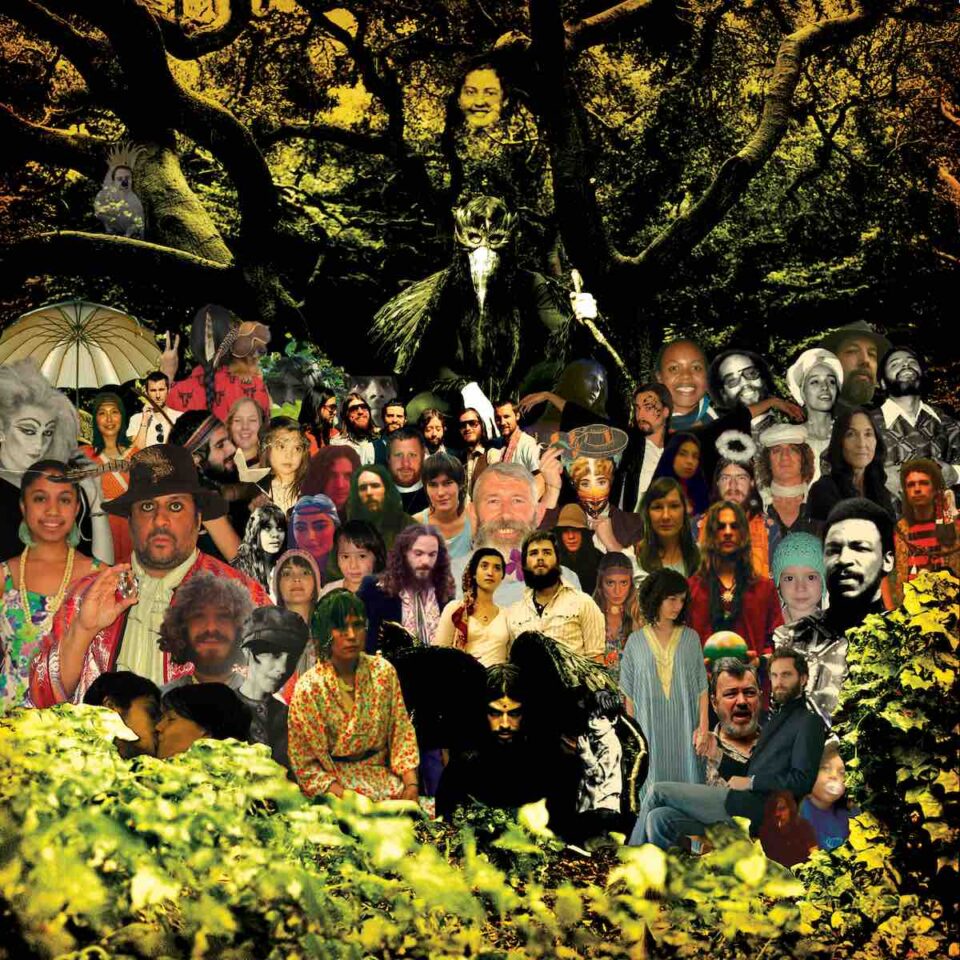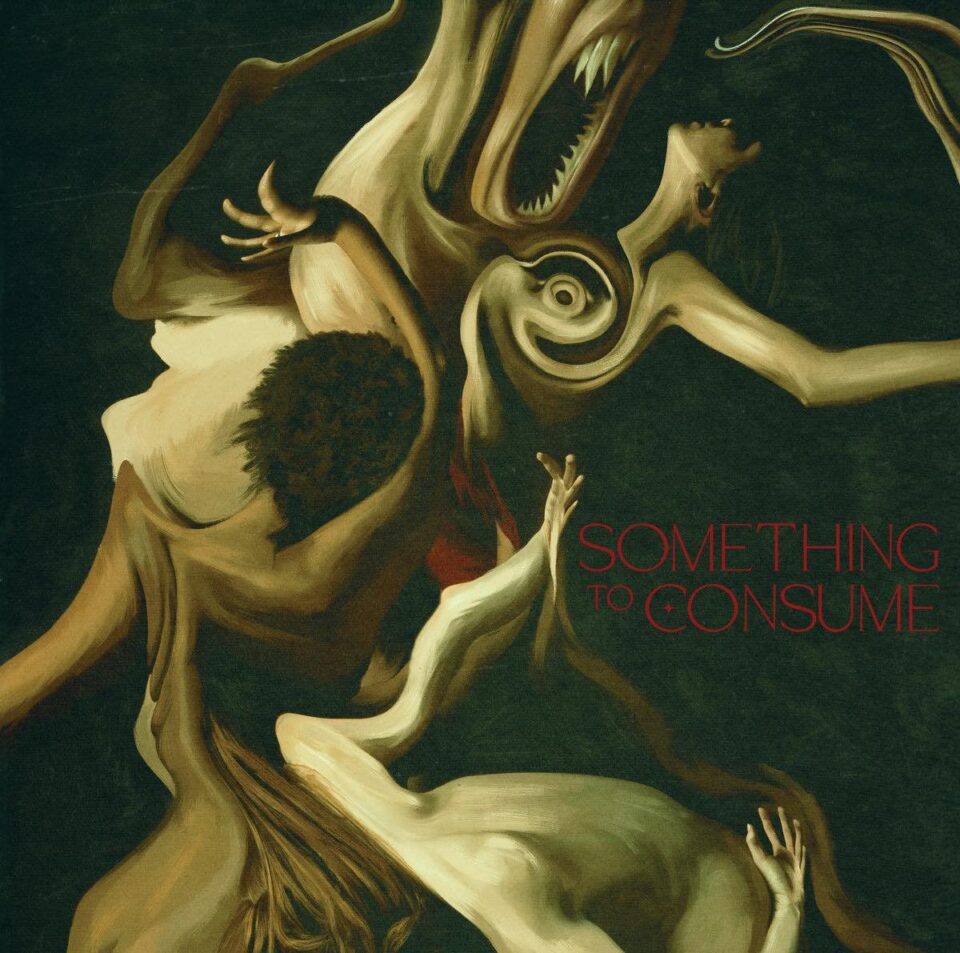The first episode opens with a ringing phone and an intimate closeup of a bedroom as the camera scans past a pipe perched up on a bedside table, a dresser with essential oils and nail polish, and an affirmation written on the wall: “Today is the first day of the rest of your life.” The intimacy of that first scene is tender like the feeling of waking up the morning after a sleepover and it sets the tone for the soothing warmth that seems to buzz over the seven-episode web series Brown Girls.
With the increased popularity of TV shows like black-ish and the growing business of professional line-sitting for Hamilton tickets, it’s clear that art made by people of color for people of color is starting to get the visibility and recognition it deserves. Maybe it’s a growing eagerness to engage with these works or maybe it’s the fierce demands for more diversity in mainstream media. More and more, it’s becoming undeniable that shows like Atlanta and Orange Is the New Black can focus on and authentically portray underrepresented narratives and still capture audiences across the board. While representation in the industry is still nowhere near where it should be, there have been steps taken towards diversifying TV and media. As it continues to happen on a large scale with the successes of Hamilton and Insecure, this year’s thoughtful contributor to the smaller pool is Brown Girls, written by Fatimah Asghar and directed by Sam Bailey. As they did with High Maintenance, HBO just announced they’ll be adapting Brown Girls for TV, so that pool is about to get even larger.
Known on her own accord as a compelling poet (see “Pluto Shits on the Universe”), Asghar’s breakthrough shot at screenwriting looks at the intimate friendship of two women of color living in Chicago. Leila, played by Nabila Hossain, is a South Asian Muslim writer learning to celebrate her queerness, and Patricia, played by Sonia Denis, is a black, sex-positive musician who’s stuck in a rut creatively and romantically.
Loosely inspired by Asghar’s friendship with fellow artist Jamila Woods, Brown Girls takes its viewers through the turbulence of a person’s mid-twenties, while still emphasizing issues unique to their communities and identity. Leila’s character is as much rooted in her Muslim beliefs as she is in her push to own her queerness, a combination that seems antithetical due to the typically black and white depiction of Muslim characters on screen. And though it’s easy to view the show as a mash-up of Insecure and Broad City, that comparison doesn’t fully encapsulate the tenderness of the relationships among the main characters. Rarely do we see brown or black women at the center of narratives, but to see two women from very different backgrounds sharing space with one another is something almost unheard of. What’s more, both characters are pursuing careers in creative fields.
This isn’t a story about living in a crime-ridden hood. It’s a narrative about historically marginalized folks handling racism and microaggressions at work, or pressure from religious or cultural values, while still tackling the chaos of adulthood.
Still, the most evocative aspect of Brown Girls is its understanding of problems specific to people of color within the framework of the millennial plight. This is where Asghar truly excels at capturing the age of her time. In episode five, the two friends and Alex (the third member of their “Single Girls Forever” club) are bemoaning their single status and Alex admits he wants “that shit that makes you wake up in the morning and makes you go to work and deal with racism because you know you can go home to bae.” This isn’t a story about living in a crime-ridden hood. It’s a narrative about historically marginalized folks handling racism and microaggressions at work, or pressure from religious or cultural values, while still tackling the chaos of adulthood, being lost in a career path, trying to make it as an artist, or simply finding love.
When Leila comes out to her auntie, she comforts her and says, “You are not alone. I got you.” Brown Girls leaves you feeling heavy yet weightless all at the same time, an all-too-familiar feeling, especially for women. It’s the stress of knowing there’s a long list of obstacles you have to deal with to even get through your day-to-day, but at the same time there are generations of people behind you, in front of you, and especially right next to you affirming you. Brown Girls acknowledges the struggle without having the characters defined by it. And while it’s important to be aware of the need for resistance and protest, especially during these trying times, the web series offers moments of bliss, sadness, and love that everyone can relate to and people of color have been witnesses to. Ultimately, this story is a shout out to brown girls that says: I see you, I hear you, and I appreciate you. FL









